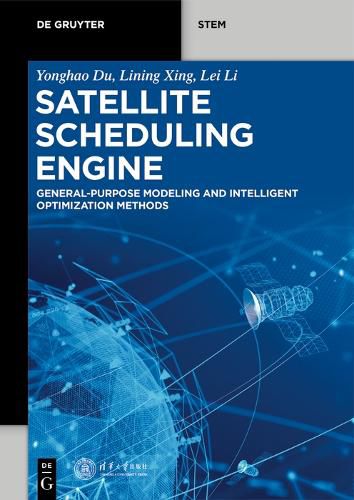Readings Newsletter
Become a Readings Member to make your shopping experience even easier.
Sign in or sign up for free!
You’re not far away from qualifying for FREE standard shipping within Australia
You’ve qualified for FREE standard shipping within Australia
The cart is loading…






Since the 21st century, national aerospace industry has developed rapidly with an explosive increase in satellites. To coordinate the in-orbit satellites and their management resources for better social, economic, and military applications, the satellite task scheduling is required. As the satellite management and application manners change over the years, cross-agency and cross-model have become the new normal, and the integration and quick-response have become the new requirements. Under such circumstances, the one satellite, one system shortcoming in system development and application occurs, while those systems that differ in agencies, modes, and types cannot accommodate each other; hence, the generality of satellite scheduling models and algorithm must be strengthened. To address the one satellite, one system shortcoming, the cooperative, flexible, efficient applications, and the monopoly of the U.S. STK/Scheduler, a Satellite Task Scheduling Engine that contains general-purpose modeling and optimization methods is studied in this book.
$9.00 standard shipping within Australia
FREE standard shipping within Australia for orders over $100.00
Express & International shipping calculated at checkout
Since the 21st century, national aerospace industry has developed rapidly with an explosive increase in satellites. To coordinate the in-orbit satellites and their management resources for better social, economic, and military applications, the satellite task scheduling is required. As the satellite management and application manners change over the years, cross-agency and cross-model have become the new normal, and the integration and quick-response have become the new requirements. Under such circumstances, the one satellite, one system shortcoming in system development and application occurs, while those systems that differ in agencies, modes, and types cannot accommodate each other; hence, the generality of satellite scheduling models and algorithm must be strengthened. To address the one satellite, one system shortcoming, the cooperative, flexible, efficient applications, and the monopoly of the U.S. STK/Scheduler, a Satellite Task Scheduling Engine that contains general-purpose modeling and optimization methods is studied in this book.